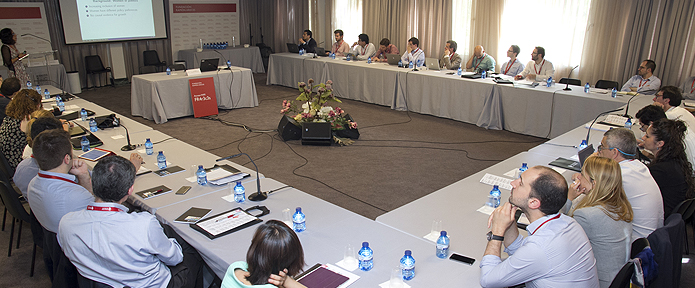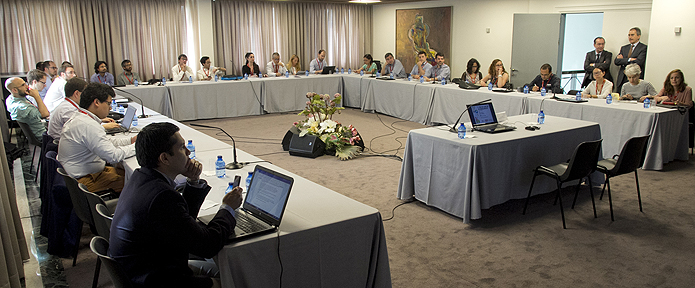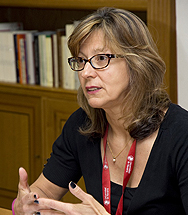"The effectiveness of the financial aid to countries at development depends on the behavior of the governments that receive it and their decisions on how to invest it."
Christiana Anaxagorou, from the University of Sheffield, participated in a meeting organized by the Navarra Center for International Development and the Ramón Areces Foundation.

Christiana Anaxagorou, pre-doctoral researcher at the University of Sheffield (UK), participated in the V NCID Research Workshop, organized by the Navarra Center for International Development of the University of Navarra and the Ramón Areces Foundation on June 6 and 7 in Madrid.
He gave a lecture entitled 'The fungibility of foreign financial aid with institutional quality: a country analysis at development'. He presented a research on the effectiveness of international financial aid and, in particular, whether the quality of recipient government institutions influences whether resources are spent for their intended purpose or elsewhere.
Christiana Anaxagorou is Master's Degree at Economics from University College London and a predoctoral researcher at the University of Sheffield, where she focuses on the relationship between external financial aid and corruption. Her main research interests are Economics of development, corruption and public finance.
What is the notion of "fungibility of financial aid"?
If, for example, an international financial aid intended to finance the construction of a school is not spent on this but on another item, then the financial aid is fungible. The concept is not necessarily negative. The recipient countries could use the money from the external financial aid together with their own internal resources, so the money is not lost, but simply allocated in a different way to make the financial aid fungible.
How can the quality of institutions in countries be assured at development to ensure that financial aid is used appropriately?
Recipient countries have the most information on the country's economic framework . Therefore, a partnership between donor and recipient nations to share information is essential. However, monitoring of activities concerning the international financial aid is also important to ensure compliance. In my opinion, an investment in improving institutions first, together with a diary transparency and monitoring of public activities, would be a step in the right direction to ensure the quality of institutions.
Why are there such different results regarding the effectiveness of foreign financial aid in countries at development?
The effectiveness of financial aid is currently at discussion. The research handles different sets of data and samples (countries or time periods), as well as different methodologies. In my opinion, the results are mixed due to these different approaches to topic. Another important reason is the fact that not all financial aid activities can be controlled for in the same way or at all and may therefore provide different results; some may be productive in contributing to growth and some may not.
Weak institutions are said to be a barrier to economic development - especially with regard to corruption. How can research contribute to this?
Until 1990, the incidence of corruption was of little international concern. Since then, there has been an increase in research on corruption, how to measure it and what its effects are. Through these programs of study, the academic world can combat this problem. There are several international agencies and initiatives that strive for greater transparency and accountability to limit corruption. Corruption is difficult to measure and existing measurements are very subjective.
Are there any success stories in the fight against corruption?
Yes, for example, in Botswana, Estonia and South Korea.
What are the implications for the development policy research you have submitted?
The main goal of the international financial aid is promote growth and development of the most disadvantaged countries. If we examine how this subject aid is allocated, we can see whether it funds activities that contribute to growth and development or is used for spending cuts and tax reductions. Donor countries and academic literature have focused on the effectiveness of financial aid; however, this is determined by the behavior of governments and their decisions on how to invest it. Focusing on government behavior with respect to its expense and revenue decisions could shed light on the lack of consensus in the financial aid effectiveness literature. In addition, it is important to examine the use of financial aid and whether it is invested as intended. This allows us to see what works and what does not, which is important considering that large amounts of resources are spent every year on international financial aid .





